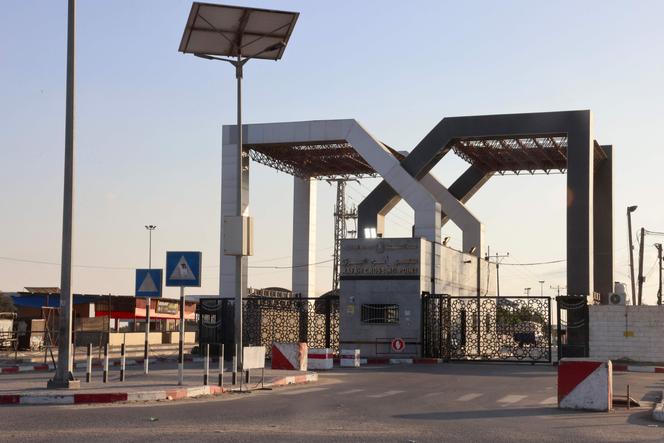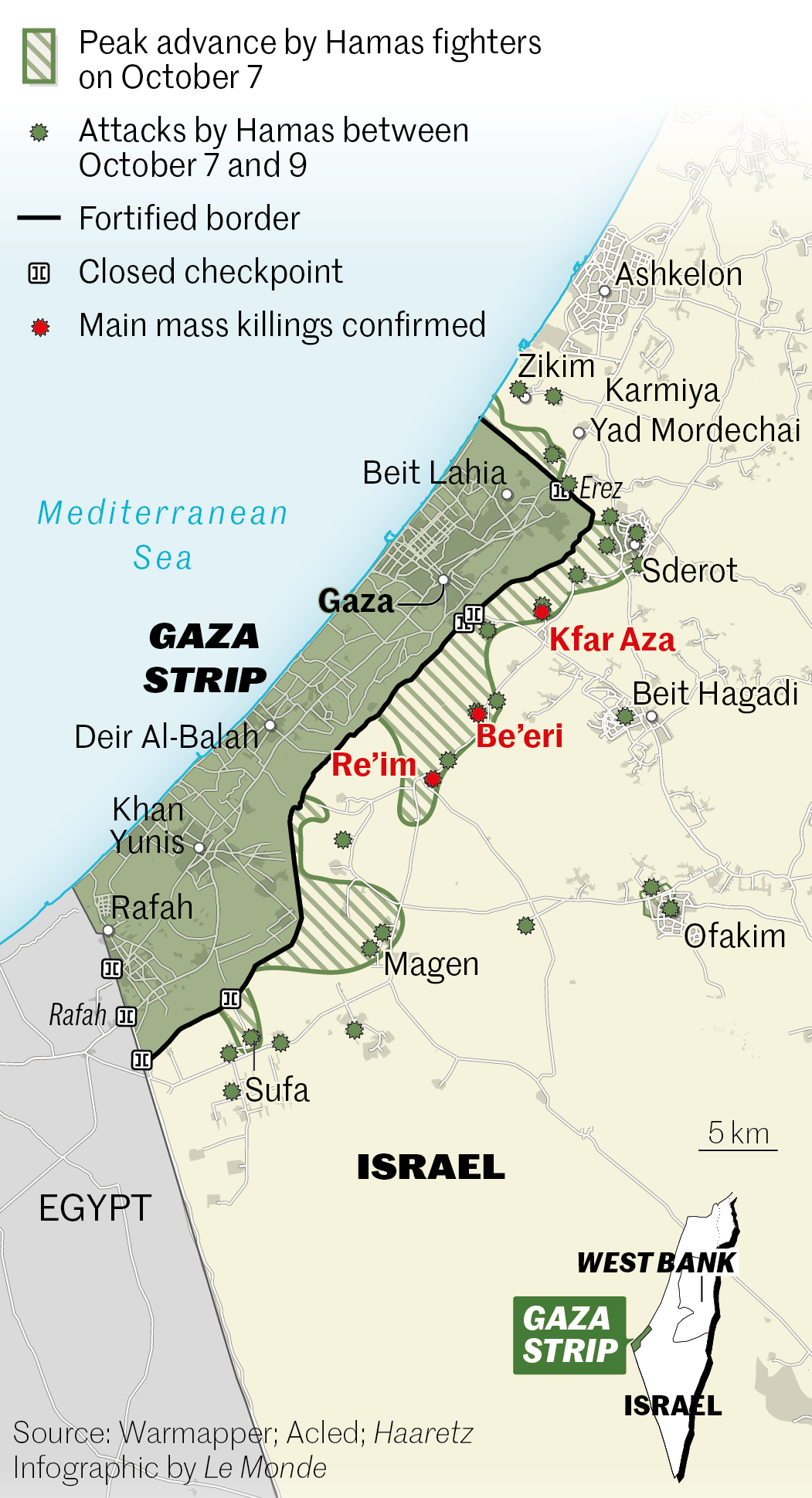


Activity at the Rafah border crossing linking Egypt to the Gaza Strip, subjected to a deluge of Israeli fire following the massive offensive launched by Hamas on Saturday, October 7, has been in a state of flux. The approaches to this unique crossing point, which is not controlled by Israel, were bombed twice on Tuesday alone, according to Egyptian media, citing local witnesses and security sources. According to them, the Israeli strikes took place on the Palestinian side of Rafah, and activity has been suspended since the last salvo. The first bombardment, on Monday evening, had damaged the road axis.

"To Gazans who can, I advise them to leave [the enclave]," declared an Israeli army spokesman on Tuesday, assuring that "the Rafah crossing is open." A few hours later, on X (formerly Twitter), Avichay Adraee, another Israeli Defence Forces (IDF) spokesman, backtracked on these statements: "There is no official Israeli intention to direct the inhabitants of the Gaza Strip towards Egyptian territory (...). The inhabitants are being directed to areas and shelters within the borders of the Gaza Strip."
The threat hanging over the Rafah border crossing was an ongoing cause for concern for the Egyptian authorities. They could not, in the eyes of public opinion, leave the enclave totally isolated from the rest of the world, and they wanted a humanitarian corridor to be maintained. In the absence of such a corridor, Cairo feared that a panicked and deprived population would flock to its border – which is not yet the case. On Tuesday, entry into Egypt was still subject to authorization. This was usually reserved for Palestinians in need of major medical treatment or transiting through Sinai to travel abroad.
Both Egypt and Jordan announced their intention to bring in humanitarian aid to Gaza via Rafah. Jordan's King Abdullah II spoke on Tuesday of a future shipment "in coordination with Egypt." Cairo, which has also been asked by international organizations to set up a humanitarian corridor, wants to bring food into Gaza.
"Both countries are determined to do just that. The fate of the convoys they charter will be a test of what is possible or not, since the Israelis declared a total blockade of Gaza on Monday," said sociologist Said Sadek from the Egyptian capital. The Egyptian Red Crescent was able to deliver medical aid to the Palestinian enclave on Sunday evening. But, according to several media reports, strikes on Monday and Tuesday near the border crossing forced other aid trucks to turn back.
You have 41.62% of this article left to read. The rest is for subscribers only.
